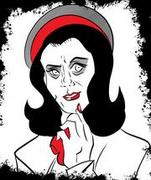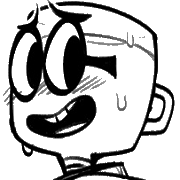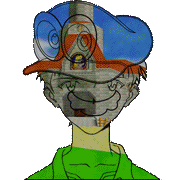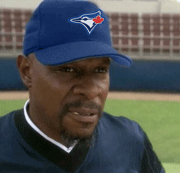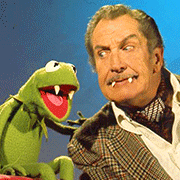|
 There are plenty of CineD goons that are interested in intellectual and academic approaches to enjoying and analyzing film. It is, however, an intimidating subject matter marred by intellectual snobbery. Personally, I love interpreting film and gleaning new meaning from the wonderful art-form of film, but I've really only dipped my toes in formally learning the subject. So what better way to learn it than with Film Theory is a set of scholarly approaches within the academic discipline of cinema studies that questions the essentialism of cinema and provides conceptual frameworks for understanding film's relationship to reality, the other arts, individual viewers, and society at large. Film theory is not to be confused with general film criticism, or film history, though these three disciplines interrelate. Although film theory originated from linguistics and literary theory, it also overlaps with the philosophy of film. Film Criticism is the analysis and evaluation of films and the film medium. It can be divided into two categories: journalistic criticism which appears regularly in newspapers, magazines and other popular mass-media outlets (aka Reviews); and academic criticism by film scholars who are informed by film theory and are published in academic journals. Academic film criticism rarely takes the form of a review; instead it is more likely to analyse the film and its place within the history of its genre, or the whole of film history. This is not a thread for reviews, it is a thread for discussing, sharing and learning academic criticism and film theory. -Do not accuse other goons of huffing their own farts, being up their own rear end, or other fun descriptors for arrogance and narcissists. This is a safe zone for intellectualism. -Personal jabs or attacks will not be tolerated. This includes intellectual superiority ("I know more than you", "Go read more books and come back when you aren't a dumbass", etc.) -Low effort poo poo-posts or antagonism will not be tolerated. No trolling. -If you disagree with a goon, know when to shut up and walk away. You are getting upset about a stranger on the internet. Don't do that. Their being right or wrong doesn't actually affect you. -Be nice. Is it so hard to actually be nice during debates and discussions? No, it isn't.
|
|
|
|

|
| # ? Apr 26, 2024 23:30 |
|
 Contents A Few Structures To Consider When Writing About Film Recommended Reading Film Theory and Criticism edited by Braudy and Cohen (now on it's 8th edition) - considered the 'bible' of the subject, commonly used as a textbook in college courses, which makes it pretty expensive. Older editions are just as good, or, as suggested by pleasecallmechrist, can be borrowed from your local library What Is Cinema? series by Andre Bazin Film Art: An Introduction by David Bordwell, Kristin Thompson and (now) Jeff Smith - another popular introductory book for media studies courses The Art of American Screen Acting, 1912-1960 by Dan Callahan - considered the text for a critical perspective on acting Film Form: Essays in Film Theory by Sergei Eisenstein - twelve essays on film by one of the most revolutionary film directors of all time The Sublime Object of Ideology (The Essential Zizek) by Slavoj Zizek - considered the best introduction to Zizek's writings Enjoy Your Symptom!: Jacques Lacan in Hollywood and Out by Slavoj Zizek - a Lacan-centric view of film A Short Guide To Writing About Film by Timothy Corrigan pleasecallmechrist recommended more books further down the page Kull the Conqueror recommends books about Documentaries Visual Resources Crash Course: Film History, Production and Criticism Crash Course: Media Literacy The Pervert's Guide to Ideology - a Zizek documentary, a nice introductory to the film-loving eccentric More resources are welcome, and will be added as discussion progresses. Franchescanado fucked around with this message at 23:37 on Jan 29, 2019 |
|
|
|
I am excited for this thread, both for how educational and informative it will be, and to see how quickly it becomes intolerable once certain posters discover it. I am strapped in.
|
|
|
|
I'm ready to eat out of the trash can.
|
|
|
|
If you're interested in a very gentle introduction to film criticism, check out the two documentaries Martin Scorsese did: A Personal Journey with Martin Scorsese Through American Movies and My Voyage to Italy. The former is conveniently available on YouTube. Both provide mostly surface-level readings of their respective subjects, but they might help you figure out what to look for and, if nothing else, will introduce you to a huge number of great films.
|
|
|
|
What does Mark Hamill have to do with anything?
|
|
|
|
Currently starting my writing series about "real" crit, excited for where this thread goes.
|
|
|
|
I just started reading Film Form so I'm excited to learn more about film theory and academic study. As soon as I learned about the concept of montage, I asked a buddy if all films were montage and he quickly pointed me towards Empire as a counter example.
|
|
|
|
.
whatevz fucked around with this message at 03:28 on Apr 25, 2022 |
|
|
|
This is my jam. I'm at work at the moment so I'll flesh out a few other resources when I get home, but wanted to throw a quick bone in for Senses of Cinema which is a free online journal: http://sensesofcinema.com Auteur Publishing also do a series of monographs on horror films called Devil's Advocates: https://auteur.co.uk/product-category/devils-advocates/ - there's currently an awesome trend (fuelled in part by the revival of genre through boutique home video releases) of scholarly critique surrounding horror. The Suspiria book is just amazing.
|
|
|
|
I've never quite understood what montage means in cinema since everyone seems to use the term differently. Is it editing in general? Editing for the sake of creating a particular association in the viewer's head? Or editing as a means of compressing time in the way Rocky does it for instance?
|
|
|
|
Samuel Clemens posted:I've never quite understood what montage means in cinema since everyone seems to use the term differently. Is it editing in general? Editing for the sake of creating a particular association in the viewer's head? Or editing as a means of compressing time in the way Rocky does it for instance? It really depends on what you mean. The Rocky scene is a “montage sequence” which is a kind of bastardized Anglo-American use of the term. In the original Soviet conception montage refers to how shots in sequence inform one another, which of course is a lot more complicated than it sounds
|
|
|
|
Samuel Clemens posted:I've never quite understood what montage means in cinema since everyone seems to use the term differently. Is it editing in general? Editing for the sake of creating a particular association in the viewer's head? Or editing as a means of compressing time in the way Rocky does it for instance? It's an easy confusion because in French it's used to denote the umbrella term of editing (so translations from Goddard/Truffaut et al can require a bit of a double take), and the root of the term can be linked further to a signifier relative to Eisenstein's use of cuts, or the idea that meaning is created through the relation of independent shots (which leads to the Kuleshov effect). The montage sequence that represents a compression of time is different, and in critical writing they'll be demarced as different concepts.
|
|
|
|
Samuel Clemens posted:Editing for the sake of creating a particular association in the viewer's head? https://www.youtube.com/watch?v=sChr6jm7Ntw The association in context of the film that Eisenstein is going for is between the lion "waking up" and the people "waking up" to the struggle against the Tsar and openly rebelling. Sequences such as the "Rocky training montage" are called that more because of how they compress story information (I.e. Rocky runs laps, trains with boxing, catches chicken etc.) from over a long period of time, and not really because of any higher abstract associations they're going for like in the Potemkin clip. EDIT: Blah, Butthole's post goes over most of this better. Raxivace fucked around with this message at 20:57 on Jan 10, 2019 |
|
|
|
pleasecallmechrist posted:Awhile back I became interested in literary and cinematic criticism and theory, so I asked some threads for the seminal, so below is the list that I got for cinema. I have focused more on literary but this thread will serve as good motivation. I started with What is cinema I and II. Both were good but I was an incredible intro to what cinema is in the context of the newest art form and how it relates to and pulls from the other arts. Will contib00t more when I have time but obviousy Bazen and Zizek. The following is a copy paste of all the things i was recommended and their context. Richard Dyer was also mentioned a lot. Hope this helps. AbeBooks. Always look up stuff on AbeBooks. You'll wait a while on the (free) shipping, but you'll save so much more money than you would buying these through Amazon.
|
|
|
|
Samuel Clemens posted:If you're interested in a very gentle introduction to film criticism, check out the two documentaries Martin Scorsese did: A Personal Journey with Martin Scorsese Through American Movies and My Voyage to Italy. The former is conveniently available on YouTube. Loving this, thank you
|
|
|
|
Thanks for the replies to my question about montage, I think I get it now. So October is basically the purest expression of montage.
|
|
|
|
I would advise anybody interested in Media Theory of any kind to read Roland Barthes's essay: Death of the Author. Most people will have heard of the concept and the man already, but essay itself is also highly readable even if you don't have any background in Media Theory and whether you agree with it or not it remains incredibly influential to this day. My own background is more in Literary Theory than film so I am not sure I will have much to add, but I will be watching this thread with interest.
|
|
|
|
my favorite part of Death of the Author is when Barthes rambles ahistorically about shamans
|
|
|
|
.
whatevz fucked around with this message at 03:26 on Apr 25, 2022 |
|
|
|
pleasecallmechrist posted:I say in some ignorance but I've always been interested in Death of the Author vs auteur theory. I know that a large tenant of DoA is that their intentions don't matter but maybe there is something more worth talking about between the two? Maybe not? So I am coming at this more from the philosophy side rather than the lit theory side but: There are a few different ways we can think about meaning, and we might say that these get at different senses of the word "meaning." So, for example, you can ask "what does this work mean to me?", or "what is the meaning of these words on the page?", or "what does the author mean by choosing to use these words?" All of those sensibly ask what something means, but understand "means" in different ways. If you like history of a certain era, Quentin Skinner's big breakthrough work is essentially laying out this distinction and then applying it to an era of intellectual history. I think that one of the reasons that you get internet fights about meaning in art is because people don't really make this distinction, and then the whole discussion gets confused with people not realizing that they're talking past each other. Or, in other words, yes. You are right. One thing I'll add is that from the philosophical side something like Death of the Author, or The Intentional Fallacy (by Wimsatt and Beardsley) isn't very common these days. This is because current understandings of meaning are heavily tied up in intentions these days. I can say more about reflexive intentions if you want, but the short version is that both the creation and understanding of meaning (in the sense that informs the meaning of a work of art that we're usually trying to get at) involve one person having their intentions understood by another in some particular way. The strongest form of anti-intentionalism you'll usually find is something like (and I'm being very reductive here) how one interprets a work irrespective of intentions is going to be what determines the best way to understand the intentions behind the work. So you kind of determine the meaning irrespective of intentions... but still need to make use of intentions to say that what you're talking about is "meaning."
|
|
|
|
Does anyone read A.S. Hamrah's criticism? He eschews plot description, referencing actor's previous work for context and political readings of non-political films so his reviews are pretty terse and use vivid language to convey accurate impressions. Here's his most recent review column: https://nplusonemag.com/issue-33/reviews/we-can-still-think-our-own-thoughts/ I find his positive reviews as interesting as his negative ones which I think is pretty rare for a modern critic.
|
|
|
|
pleasecallmechrist posted:I say in some ignorance but I've always been interested in Death of the Author vs auteur theory. I know that a large tenant of DoA is that their intentions don't matter but maybe there is something more worth talking about between the two? Maybe not? You should watch the new Lindsay Ellis video. No direct connection to auteur anything, but an interesting look at DOA vs modern artist engagement.
|
|
|
|
Cloks posted:Does anyone read A.S. Hamrah's criticism? He eschews plot description, referencing actor's previous work for context and political readings of non-political films so his reviews are pretty terse and use vivid language to convey accurate impressions. I love this. Capsule reviews are underrated, and really open the opportunity for writers to get a bit poetic in their critiques.
|
|
|
|
Would animation and claymation technically qualify as jump cuts? Or since they try to make the cuts invisible is it just personal opinion?
|
|
|
|
got any sevens posted:Would animation and claymation technically qualify as jump cuts? Or since they try to make the cuts invisible is it just personal opinion? I mean, "shot" generally refers to a collection of frames resulting in a concentrated view of an object or person of varying lengths, and animation cels or still photographs of claymation are more akin to frames. A jump cut refers to a relation between shots, not frames, so not really.
|
|
|
|
If you're at all interested in specifics of documentary (fuckin' nerd), there are some reading options of varying complexity: Introduction to Documentary by Bill Nichols is dry but well-written and very reasonable as far as creating something of a typology of the form. It sort of takes the perspective of all audio-visual material being a documentary of some form or another. Theorizing Documentary by Michael Renov is deeper and even dryer but I think he nails the inner struggles of depicting 'reality' in a box between concepts like preservation, persuasion, analysis, and expression. But if you just read one book, it should be Documentary: A History of the Nonfiction Film by Erik Barnouw. It is not only the best book on documentary but one of the best books about film ever written. It's written beautifully and tells the story of the discipline like the epic quest for truth that it is. Oh, and if you aspire to make docs, just read Let Us Now Praise Famous Men by James Agee/Walker Evans. The opening essay on what it means to capture the truth remains one of the most perfect encapsulations of everything that's great and preposterous about documentary. Kull the Conqueror fucked around with this message at 16:37 on Jan 22, 2019 |
|
|
|
I, Butthole posted:I mean, "shot" generally refers to a collection of frames resulting in a concentrated view of an object or person of varying lengths, and animation cels or still photographs of claymation are more akin to frames. A jump cut refers to a relation between shots, not frames, so not really. Yeah, this. A normal shot of live action is technically discontinuous frames, too, it's just recorded in real-time so it's not something you question. Stop-motion is a more overt manipulation of the medium, but it's doing the same thing...sampling enough frames of an action to stay within the threshold of persistence of vision.
|
|
|
|
I got an older edition of Film Theory and Criticism (fifth ed.). Would people be interested in discussing the essays and interpretations / arguing them? I can post links to them as I work through it.
|
|
|
|
.
whatevz fucked around with this message at 03:25 on Apr 25, 2022 |
|
|
|
Cloks posted:I got an older edition of Film Theory and Criticism (fifth ed.). I'm currently reading through the sixth edition now.
|
|
|
|
Cool, I'm going to read the book in order so I'm starting with the section on film language. The introduction to the essays in this section contextualizes them as presenting various ideas on if film can be understood as a language. They cover film from its development and the early conception of montage to the idea of language conveyed through the tracking shot, shot / counter shot, usage of depth and other filmic techniques. This week I plan to read: Vsevolod Pudovkin : from Film Technique, on editing Sergei Eisenstein: from Film Form Note that these are links to specific places within a larger .pdf file Beyond the Shot The Dramaturgy of Film Form I will be watching: The Strike https://www.youtube.com/watch?v=hG_yM7We0C8 Battleship Potemkin https://www.youtube.com/watch?v=_4Qfuzn25sI October https://www.youtube.com/watch?v=YVuf3T3k-W0 Cloks fucked around with this message at 22:35 on Jan 27, 2019 |
|
|
|
October is insane. It feels like the work of some advanced alien race that's far beyond our puny human understanding. Kind of makes me wonder what Eisenstein would have done next if Stalin hadn't told him to knock it off.
|
|
|
|
Cloks posted:I got an older edition of Film Theory and Criticism (fifth ed.). That would be quite nice.
|
|
|
|
Samuel Clemens posted:October is insane. It feels like the work of some advanced alien race that's far beyond our puny human understanding. Kind of makes me wonder what Eisenstein would have done next if Stalin hadn't told him to knock it off. You ever see Que Viva Mexico?
|
|
|
|
Not yet. How does it compare to his previous work?
|
|
|
|
Samuel Clemens posted:Not yet. How does it compare to his previous work? I finally finished Eisenstein's filmography last year and it's got some pretty photography, but it's kind of loose in construction. So much of his films is in the editing that it sort of makes sense why it doesn't have the same impact as his finished films.
|
|
|
|
I really love it because it's got some of the most lavish images he ever shot, but it was edited from raw footage after his death so I can see that being an issue. I'd still say it's an underrated essential.
|
|
|
|
A Few Structures To Consider When Writing About Film Definitions from Timothy Corrigan's A Short Guide To Writing About Film 8th Edition Screening Report Objective, concrete notes that act as a preparation for discussions and examinations. Think of a film studies class syllabus or an introduction for Movie of the Month. They tend to be short (a couple of paragraphs; one or two pages) and focused on specific points or questions, with audio and visual details provided when possible. Example: Screening Report for Citizen Kane Movie Review The most familiar form of film analysis, aimed at a broad audience without relying on special knowledge of film. It intends to introduce unknown films by either recommending them or not recommending them. Provides a summary and a context for the film. Example: 1941 review of Citizen Kane Theoretical Essay An essay that incorporates knowledge of film, film history, and other writings about film. It intends to explore larger and more complex structures of film and how we engage with it, and where it fits in the pantheon of art. Usually also incorporates other fields of Humanities, including psychology, politics, history, and philosophy. Intended for a scholarly audience. Example: Psychoanalytical Viewing Of Citizen Kane Critical Essay The in-between for Theoretical Essays and Movie Reviews. The intended audience should have seen the movie or has enough familiarity with the film or filmmakers to discuss it. The main intention is to reveal subtleties or complexities that may have been missed on an initial viewing, including themes, motifs, or even technical accomplishments (camera movements, musical cues, unique expressions through editing, cinematography, etc.) Example: A critical analysis of Orson Welles's Citizen Kane
|
|
|
|

|
| # ? Apr 26, 2024 23:30 |
|
I'm trying to do something based on the last two, and it's been a real balancing act, especially when I want to talk about old or "bad" movies many haven't seen or want to engage with. Also trying to find that thought that will carry the analysis beyond is it "good" or not. I think the real issue is finding a structure that feels complete, if that makes sense. You pick and choose what you want to talk about, but it comes off as scattered at times, especially when you're trying to end the thought. Here's my first one, and I'd love some feedback, but it's about a semi recent movie (netflix), so spoilers. https://docdro.id/xOcGagA
|
|
|






